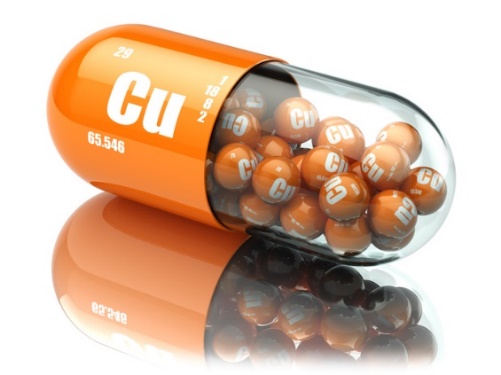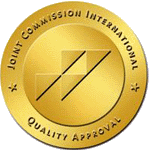Copper in the human body

Copper is an essential microelement necessary for the normal functioning of the human body. It is part of enzymes and takes part in all processes:
- metabolism, in tissue respiration, together with iron it participates in the creation of red blood cells and hemoglobin
- maintaining the normal structure of bones, cartilage, tendons, elasticity of blood vessel walls and skin, being a component of collagen
- formation of skin and hair pigments
- normal function of the thyroid gland and cardiovascular system, in the digestion of proteins and carbohydrates
- immune system function
- production of female sex hormones
- vestibular strengthening
Copper is able to penetrate all cells, tissues and organs. The maximum concentration of copper is noted in the liver, kidneys, brain. The physiological need of the body in copper is 2-3 mg/day.
Causes of copper deficiency can be caused by: insufficient intake with food, prolonged use of antibiotics, corticosteroids, non-steroidal anti-inflammatory drugs, impaired absorption of nutrients, surgeries on the GI tract, increased consumption of copper in diarrhea, burns; zinc intake into the body more than normal.
Copper deficiency can occur in people suffering from diseases cystic fibrosis, celiac disease.
The main manifestations of copper deficiency:
- decrease in iron absorption, development of anemia
- deterioration of cardiovascular system activity, increased risk of coronary heart disease
- deterioration of bone and connective tissue, impaired bone mineralization, osteoporosis, bone fractures
- increased disposition toward allergic dermatoses, bronchial asthma
- hair pigmentation disorders, vitiligo
- lipid metabolism disorders (atherosclerosis, obesity, diabetes)
- suppression of immune system functions
- enlargement of the thyroid gland (hypothyroidism, thyroxine deficiency); delayed sexual development in girls, menstrual disorders, decreased libido in women, infertility.
- accelerated aging of the body.
Copper deficiency in the body can develop with insufficient intake of this element (1 mg/day or less), and the threshold of toxicity for humans is 200 mg/day.
In turn, increased copper content in the body is very toxic to the body. The causes of excess copper may be:
- excessive intake into the body (inhalation of vapors and dust of copper compounds in production conditions, household intoxication with solutions of copper compounds, use of copper utensils)
- violation of the copper metabolism regulation.
The main manifestations of copper excess:
- сopper fever (chills, fever, sweat, cramps in the calf muscles) may occur when vapors are inhaled
- exposure to dust and copper oxide can lead to lacrimation, irritation of the conjunctiva and mucous membranes, sneezing, burning in the pharynx, headache, weakness, muscle aches, gastrointestinal disorders
- liver damage with the development of cirrhosis and secondary brain damage
- functional disorders of the nervous system (memory impairment, depression, insomnia), renal dysfunction
- allergodermathosis
The main sources of copper for humans are beef liver, seafood, especially shrimp and crab, seeds, nuts, mushrooms. Two daily norms of copper, contained in a hundred grams of crab meat, one and a half norms in the liver, and to get the daily norm from nuts, cashews - will require at least one glass. Therefore, the best option to get the norm of copper from different products - liver, seafood, nuts, seeds, mushrooms, apricots, prunes, bananas, beans and the body will get much more vitamins and minerals.
It is also important not to lose copper from food:
- copper absorption is reduced by taking iron supplements
- too much fructose in the diet, increases copper absorption
- foods with high copper content are not recommended to eat with bread or a lot of vegetables - phytoncides contained in them can form complexes with copper and remove it from the body.
- alcohol abuse - reduces copper absorption.
It is important to know!
In the human body, copper deficiency occurs in extremely rare cases, as the consumption of common products is quite enough to replenish the norm of this trace element.
In order to find out your level of copper in the blood, you should contact your doctor, who will give an appropriate conclusion based on the results of the analysis and will propose one or another tactic of treatment.




